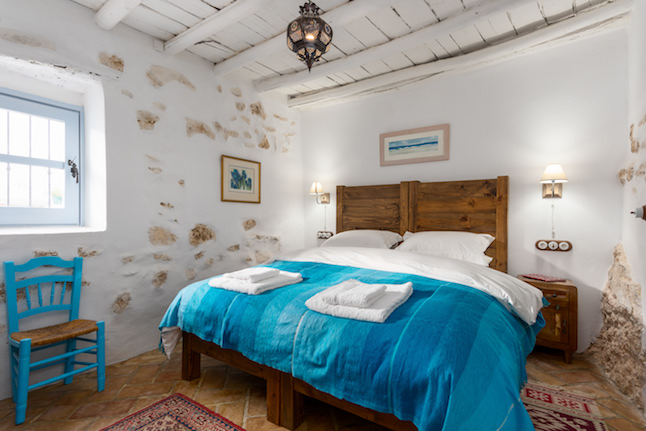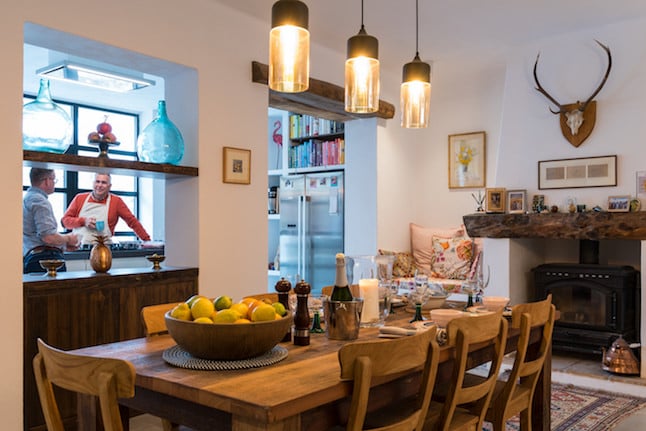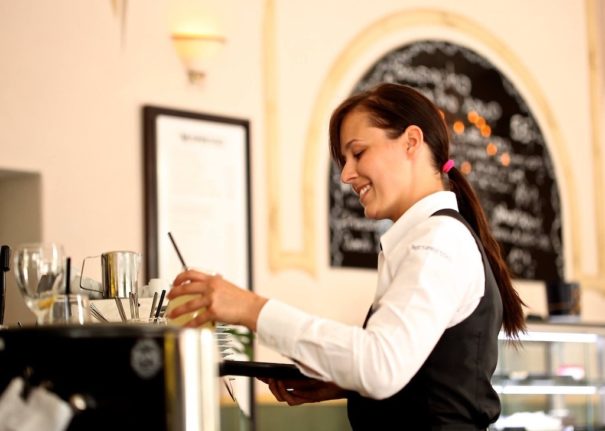With a chronically high unemployment rate, the only option for many foreigners in Spain who want to make ends meet here is to open their own business.
Buying your own house and turning it into a B&B is an obvious choice for many as you don’t have to speak fluent Spanish, you’re not relying on the local job market and you’re not trying to set up a big company, so it’s relatively manageable.
The Local Spain spoke to Briton Ian Rutter who, along with his husband Andrew, set up Casa Higueras Bed & Breakfast near Granada, about what their experience has been like.
When did you set up your B&B business and how easy was it to do so?
“We renovated the house over the course of a year, from 2018 to 2019 and we were due to officially open Casa Higueras as a bed & breakfast on April 1st 2020. As you can imagine, the pandemic’s lockdown put a stop to that and we faced a period of time with an empty house and no prospect of guests. At that stage, we had no idea how long the lockdown would last and when we would actually be able to open for visitors.
However, we had already set up another business before this – Granada Concierge and managed to get in a year of running creative courses in 2019 before the pandemic hit us. The idea for Granada Concierge came as soon as we arrived in our village, Moclín. I had run creative courses before, many years ago, and when we were shown around the village, we identified several beautiful buildings that were crying out for use as venues for creativity.
We registered as autónomos (self-employed) here, and it was actually very easy to set up subsidiary businesses once we had done that. We have a gestor so we just ask him to register our latest venture with the Hacienda, and then file our accounts every quarter.”
READ ALSO: Self-employed in Spain: What you should know about being ‘autónomo’
 Casa Higueras B&B. Photo: Sam Milling
Casa Higueras B&B. Photo: Sam Milling
Was it always your dream to set up a B&B in Spain or did you just decide to do it once you arrived?
“No. Our initial plan was simply to come and live here for a year. We rented a house in the Lecrín Valley, south of Granada, and we rented out our house in London. We were fortunate that we could afford to have a year of adventure, learn the language and explore Andalusia. However, we knew almost as soon as we arrived here in October 2016 that we would not be going back to the UK. It was then that we realised that we’d have to earn a living if we wanted to stay.
My husband Andrew and I have portfolio careers anyway, so set up as employed in Spain when we decided to stay. Andrew designs children’s books and works for UK and US publishers, and I am a radio presenter and voiceover artist and have a steady flow of voiceover projects to keep me busy. We found that Spain presented us with many more opportunities than we ever expected. My first voiceover project here came through an e-learning company in Madrid, providing voiceover for a large United Nations training programme.”
Who are your main customers?
“We originally thought our main market would be the UK, but the pandemic rather changed the emphasis. The UK government’s messages were so confusing that many UK travellers just gave up any thought of travel abroad.
As a result, we promoted our businesses in the US and mainland Europe and we managed to get a good percentage of guests from Spain too. It was interesting that many of our Spanish customers wanted self-catering accommodation so that they could get together with their families, but we still got a steady flow of visitor traffic.”
What are the positives of owning and setting up your own B&B in Spain?
We love the flexibility and the freedom of our working life here in Spain. One of the main reasons for moving here was so that we could concentrate on doing things we love, as opposed to sitting in a ghastly office and then commuting for hours. We work as and when we please. We don’t have to have wall-to-wall bed & breakfast bookings, and we only run four or five weeks of creative courses each year. Our driving force is our love of the village in which we live, and the stunning landscapes that surround us. We want to share this, and giving something back to the village is integral to everything we do here.
We love having guests, and we offer dinners on request which has reignited our love of cooking. We’ve been able to create something that feels very special to us and we hope that this filters down to our guests.
The fees payable by autónomos are often considered to be onerous, but when I analyse what we pay, and the healthcare that we receive by paying social security, and the pension benefits later in life, then we consider it to be a good investment.
On top of that, we have a beautiful home, great weather, a place where our friends and family can come and spend quality time with us and we have wonderful friends and neighbours in the village, all of whom have become extended family.”

What are the cons of setting up your own B&B in Spain?
“There are very, very few cons. Due to the cost of living here, it is easier to be entrepreneurial and give business ventures a go. If they don’t work, try something else. We would never have been able to afford to do half of the things we have done here if we were still in the UK. I get lots of voiceover work here because I am a native English speaker. In the UK, the competition for voiceover artists is huge, and most large organisations want celebrity and recognisable voices.
Of course, we have had challenges over the past 19 months, along with many other people, but we are immensely grateful that we live here and have never had any regrets.
The biggest con that comes to mind is the cleaning! No matter how many sets of bed linen you have, or whether or not you can afford help, cleaning between guests is never a huge amount of fun. Doing it when the thermometer tips 40°C in the summer, you know that the installation of a swimming pool cannot come soon enough.”
What type of work do you think you would be doing in Spain if you didn’t have your own business?
It’s difficult to say as we arrived with work in our respective fields. I did a TEFL course before we came out here and I spent the best part of a year teaching in an academy in Granada, but that was always only intended to be a gap-filler.
READ ALSO – Not just English teaching: The jobs you can do in Spain without speaking Spanish
Do you have any more tips, pieces of advice for anyone in Spain that wants to set up their own B&B too?
- “Use your experience. I had experience in travel and used to run my own businesses in the UK. I also produced and presented two different radio programmes in the UK, and continued when we arrived in Spain. Andrew has over 17 years of experience as a book designer, so we do have extensive knowledge of the fields in which we work.
- Ensure that all your paperwork is correct and up to date. I hated doing tax returns in the UK, and I now find it a lot less stressful sending all our figures to the gestor each quarter. During the pandemic, we were sending accounts across every month and it is much more manageable.
- Do what you enjoy. There is little point in being in such a gorgeous place unless you are enjoying it. Running a B&B is hard work, but it is a fabulous feeling to know that guests appreciate what you do and the accommodation you provide.
- Learn Spanish. I know that everyone would say this but it is true, particularly if you live in rural Spain. We are not fluent, but we did go to school for eight weeks when we first arrived and have continued with lessons ever since. Having the ability to chat to locals opens up many more opportunities and the opportunities are out there.”



 Please whitelist us to continue reading.
Please whitelist us to continue reading.
Member comments